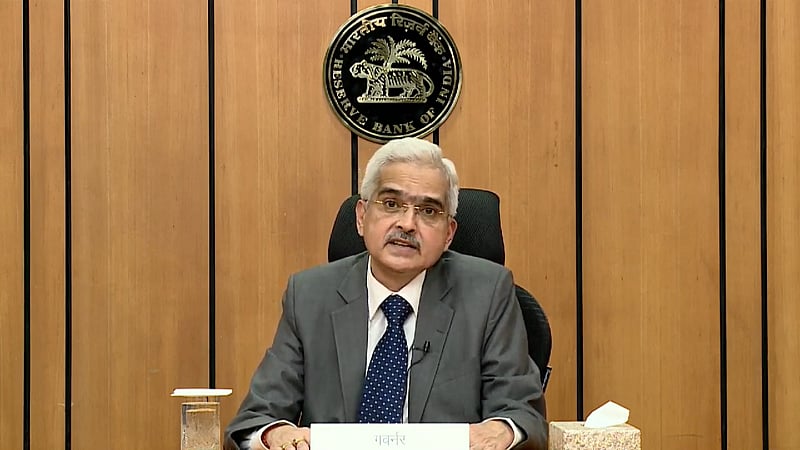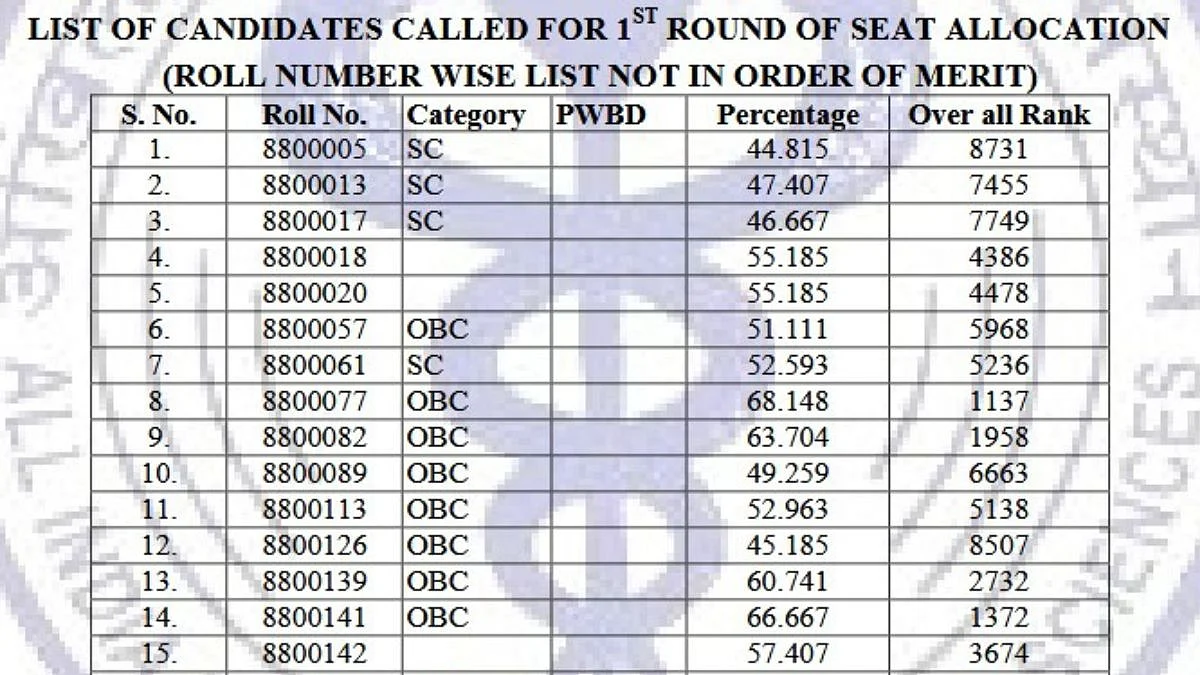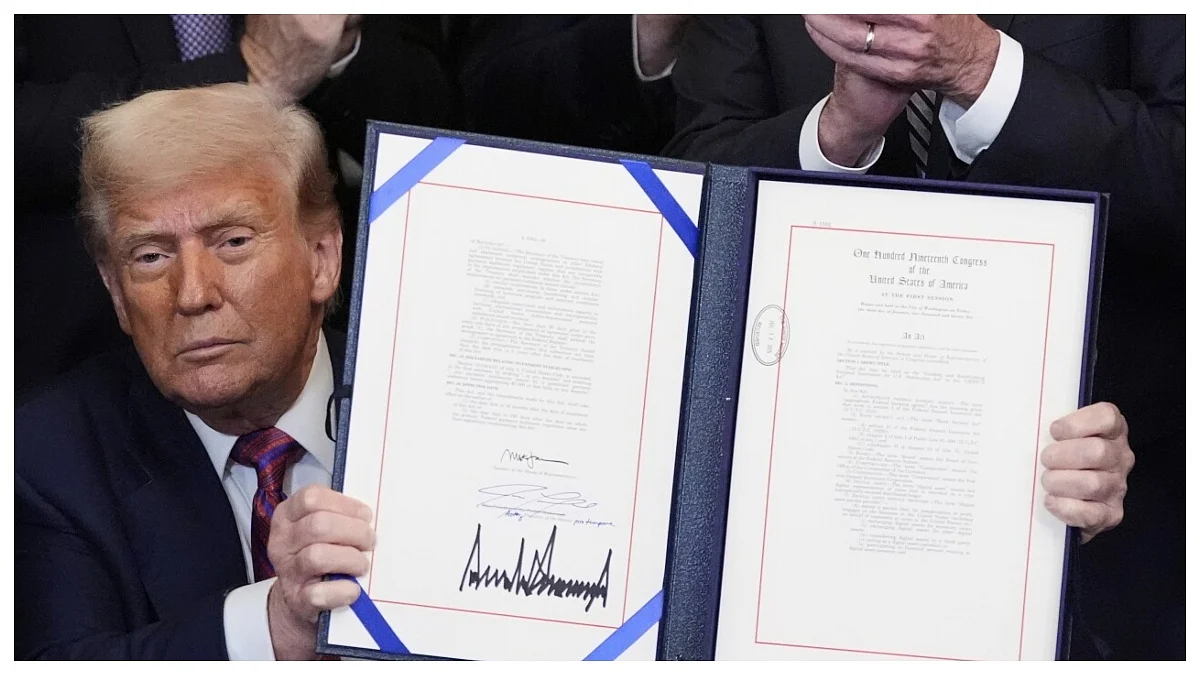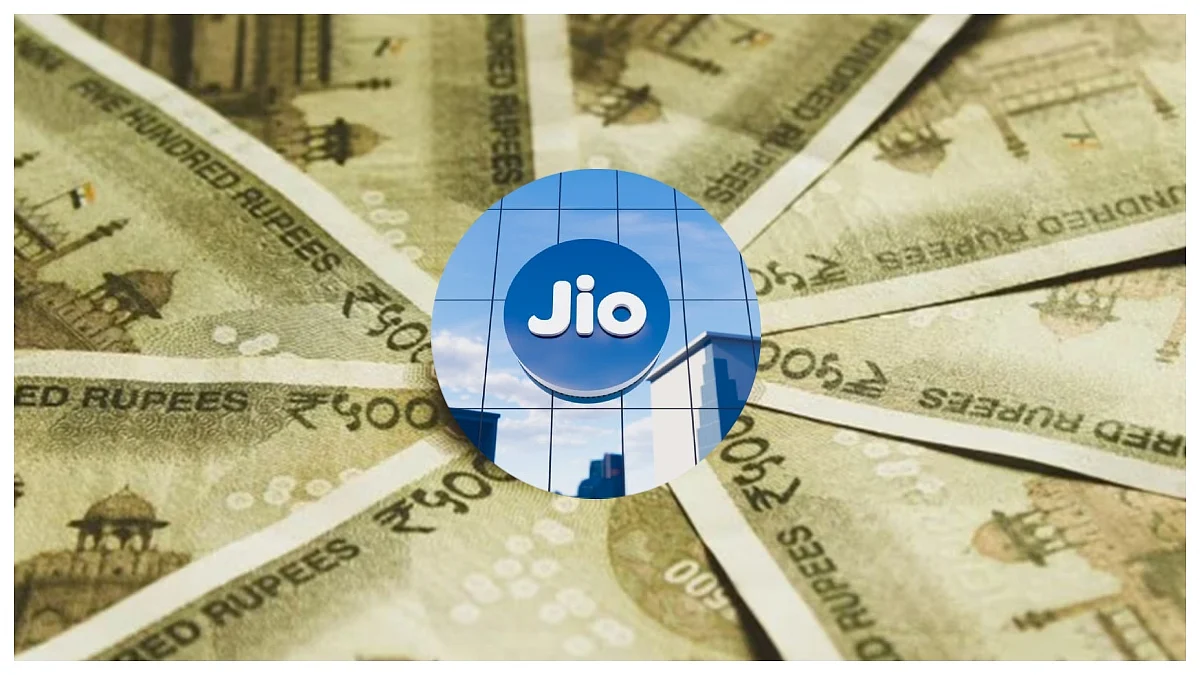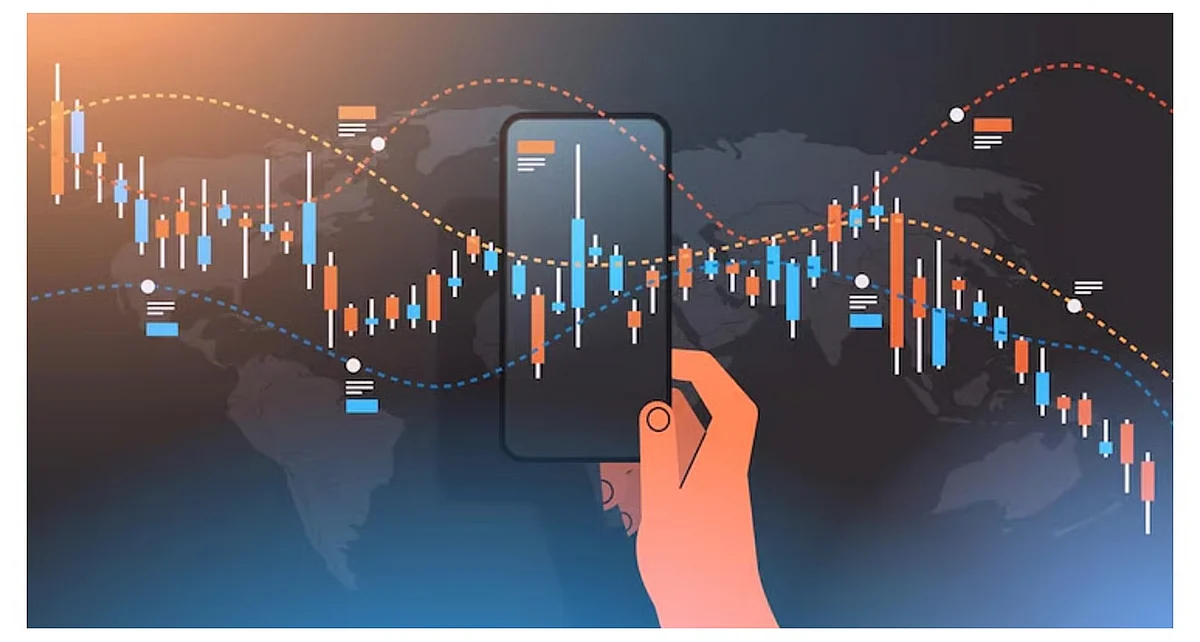In an unscheduled meeting held on May 4, the Reserve Bank of India (RBI) governor Shaktikanta Das announced a hike in the benchmark lending rate by 40 basis points (bps) to 4.40 percent in a bid to contain inflation, which has remained stubbornly above the target zone of 6 percent for the last three months.
RBI Governor said the monetary policy committee (MPC) held an unscheduled meeting from May 2-4 and voted to increase repo rates by 40 basis points.
The decision follows an unscheduled meeting of the Monetary Policy Committee (MPC), with all six members unanimously voting for a rate hike while maintaining the accommodative stance.
While the inflation has remained above the targetted 6 percent since January, RBI Governor Shaktikanta Das said the inflation print in April is also likely to be high.
The retail inflation print for March stood at 6.9 percent.
The RBI has done the first rate hike since August 2018.
The governor said the decision of MPC reversed the May 2020 interest rate cut by an equal amount.
Experts weigh in:
Aditi Nayar, Chief Economist, ICRA Limited
Today's surprise repo rate and CRR hikes are very well-timed, as our own CPI inflation projection for April 2022 is an eye-watering 7.4 percent. By advancing the rate decision by approximately one month, the MPC has focused on preventing inflationary expectations from unanchoring in an increasingly uncertain environment. The Committee has displayed its nimble-footedness and clearly completed the pivot back to inflation management. If the US Fed's decision tonight is more hawkish than expected, then the 10-year Gsec yield could test 7.5 percent as early as tomorrow; this is the cap that we had foreseen for H1 FY2023.
As of now, we see a higher base softening the May 2022 CPI inflation print considerably, although it will likely remain above 6.0 percent. While a back-to-back hike in the June 2022 policy is not yet certain, we do foresee an additional 35-60 bps of rate hikes in the remainder of H1 FY2023. If a de-escalation in geopolitical tensions cools commodity prices, then we expect a pause to reassess the impact on growth, followed by another 25-50 bps of rate hikes in CY2023.
Anjana Potti, Partner, J Sagar Associates
The geopolitical situation caused by Russia's invasion of Ukraine is weighing on all markets. Market watchers across the world have their eye on the US Federal Reserve which likely to announce a decision to increase rates later tonight. Central banks in many countries are raising rates to counter the effects of inflation. These costs of borrowing had fallen to record lows during the pandemic to bolster growth.
Following this trend, the RBI has increased its repo rate from 4.00 percent to 4.40 percent and this is likely to have a significant impact on the market including on:
Short-term deposits: Short and mid-term rates always rise quickest in response to any change in the interest rate cycle
Retail borrowing: Interest rates are likely to be higher for new borrowers. Existing borrowers with floating interest rates will also be affected
Higher costs of living with the increase in prices of commodities due to a lack of supply where everything from food to gas and clothing cost more coupled with higher costs of borrowing will likely slow consumer spending, limiting growth, which has been the recent focus of the RBI’s Monetary Policy.
Amit Goyal, CEO, India Sotheby's International Realty
The RBI decision to hike the policy rates are not surprising given the immense inflationary pressures we are seeing. This signals an end to the historical low interest rates regime, as lending institutions will soon follow with increase in rates on deposits and loans. We don't believe though, home loan rates will increase by more than half to one percent this year. These are still fairly low interest rates and home buyers should make use of it. Real estate as an asset class is always a preferred investment to park savings in during inflationary times.
Incentives like relief in the stamp duty and registration fee can help the positive impetus in the real estate sector to continue. State governments should consider taking such steps.
Anurag Mathur, CEO, Savills India
The Monetary Policy Committee (MPC) in an off-cycle meeting has hiked the repo rate by 40 basis points to 4.40 percent with immediate effect. This comes in the backdrop of retail inflation clocking a 17 month high of 6.95 percentin March 2022, which is significantly higher than the RBI’s outer tolerance level of 6.0 percent. Moreover, the withdrawal of accommodative policy clearly indicates cognisance of critical factors such as geo-political tensions in Eastern Europe and recent increase in crude oil prices. Leading banks had already increased housing loan rates in the past few months. With benchmark lending rates rising for the first time since August 2018, end user demand in the residential segment may get tapered to a certain extent. The impact of the off-cycle decision on all housing segments especially affordable housing demand needs to be closely monitored in upcoming quarters. On the supply side, steady rise in construction costs and the impact on financial stability of developers, unable to pass through the increase, could create a pressure on pricing.
Ashish R Puravankara, Managing Director, Puravankara
The RBI’s move to increase the repo rate to 4.40% to curb the rising inflation might lead to an increase in lending rates, including home loans. The incline is less likely to have an immediate and significant impact on the buyer sentiment, especially against the backdrop of the rising input costs. We are hopeful that if there is a rise, the financial institutions will increase the rates in a phased manner to help minimise the impact on the homebuyers.
Bhushan Nemlekar, Director, Sumit Woods Limited
It is not very surprising that the RBI has increased the repo rates by 40 basis points keeping the inflation of our country as a major concern in mind. With the increasing prices of property, this decision is a huge setback for the real estate industry disrupting the ongoing growth momentum in the sector.
Dinesh Khara, Chairman, SBI
The front-loaded action by RBI today to hike benchmark rates and CRR is a testimony of the flexibility, while remaining aware to changing realms of global upheavals will go a long way in supporting the markets.
Dhiraj Relli, MD & CEO, HDFC Securities
In a surprise meeting today, RBI announced a repo rate hike by 40bps and an increase in the CRR rate by 50bps. RBI is no longer behind the curve to react to rising inflation numbers. In terms of timing, it took everyone by surprise and the hike of 40bps is higher than the market expectation of 25bps in the June Meet. This apart, the increase in CRR by 50bps will withdraw Rs 87,000cr liquidity in the system. Immediately on the announcement, all interest-rate sensitive stocks fell sharply including Banks, Auto, Real estate, etc. Coming ahead of the US Fed announcement due today, the RBI has taken the lead for the time being after being blamed for being behind the curve by some economists. Nifty could remain under pressure for some time.
Dr Arun Singh, Global Chief Economist, Dun and Bradstreet
The Reserve Bank of India’s sudden move to hike the policy rate and CRR has surprised many and is the indication of a scenario where inflationary conditions are set to worsen. It appears that RBI is under pressure and playing a cautious role as geopolitical risks are aggravating and supply chain disruptions are becoming protracted. As the spillover effects of the conflict are likely to intensify, further fuelling inflationary pressures, another increase in the policy rate in near future cannot be ruled out. Borrowing costs which had already started increasing after the introduction of the standing deposit facility are set to increase further. Companies, especially small businesses will be significantly impacted from higher commodity prices and high cost of borrowing.
Dr Sachin Chopda, Managing Director, Pushpam Group
In an off-cycle monetary policy meeting, the RBI increased the repo rate to 4.4 percent for the first time in almost two years. This has come as a shock to the entire real estate industry impacting investor's decisions directly as the home loan rates may increase anytime soon. This will create a huge impact on the long-term goals by the investors.
George Alexander Muthoot, MD, Muthoot Finance
Given that the RBI Governor had already highlighted his concerns over inflation and downside risks to growth emerging on account of escalation in geopolitical tensions during his last monetary policy announcement, thus the hike in rate was expected, but the timing was a surprise. The RBI has hiked the repo rate by 40 bps to 4.4 percent hiked CRR by 50bps to 4.5 percent. We understand that the uncertainty evolving around geopolitical tensions, high inflation rate due to hike in global oil prices and food prices are likely to elevate the input cost pressure and further pose a challenge. However, since we are witnessing signs of recovery in the economy, the RBI rate hike may not dampen overall demand scenario. There is adequate liquidity for productive requirements of the economy and as such borrowing cost in the system may go up at a gradual pace. We believe this is surely the beginning of the RBI rate hike cycle, although in a calibrated manner to respond to the evolving growth-inflation situation. The RBI has also reiterated that they will ensure adequate liquidity in the system to meet the productive requirements of the economy in support of credit offtake and growth.
Gulam Zia, Senior Executive Director, Knight Frank India
With the rapidly changing geopolitical scenario that continues to pressurize the global supply chain and commodity prices, domestic policy rates were expected to be realigned to the changing scenario. Therefore, while not unexpected, as the RBI Governor had already shared concerns over rising inflation, the interest rate hike amidst rising input costs is expected to have its impact on real estate. The sector has vastly benefited by the low interest rates in the last two years. This policy rate hike will translate into higher EMIs for home loans. However, we believe that improved homebuyer attitude, preference for owning a house and strong wage growth will continue to support the housing market. The monetary policy stance is still accommodative and with the receding pandemic and economic growth, we expect that consumer demand will remain buoyant in the near term.
Harsh Jain, Co-founder and COO, Groww
The LIC IPO is the largest IPO and the most anticipated financial event this year from an investor's standpoint. Over the last few years, there has been a heightened interest and activity among retail investors. In that context, LIC IPO will give a boost to participation from investors in tier II and III cities as well. Investors are also keen to gain knowledge and information around this IPO. LIC has a separate allocation for policyholders, there may be a lot of first-time investors entering the market for IPO.
Indranil Pan, Chief Economist, Yes Bank
The logical underpinning of RBI hike today and away from the regular policy date is the rising concern on inflation – especially with regards to food. Food inflation, more than the non-food inflation, can change inflation expectations in India drastically. The governor pointed out that even as domestic supplies are healthy, global high wheat prices are affecting domestic prices while edible oil prices have increased due to the ban in exports from Indonesia. Manufacturers may also pass on higher input costs to end users sooner than later. Thus, the crucial backing for the 40bps hike came from an understanding that inflation is here to stay. The timing of the hike is important too as it seems to just precede a likely 50-75bps increase in the policy rate by the US Fed. This is possibly to ensure that the INR is safe from any speculative attacks, notwithstanding the LIC IPO, and especially as the FX reserves are down by around US30 bn from its peak levels. In this financial year alone, India’s FX reserves are down by about $ 6.9 billion.
Jitesh Lalwani, President, Homesync Real Estate Advisory
The RBI’s surprise move to increase repo-rate by 40 basis points in the emergency meeting will create a hitch for the realty industry soon. The banks will anytime start increasing the interest rates on home loans that shall impact the homebuying decision going forward. We urge the Government to act upon the situation to support the realty sector and in favour of homebuyers.
Kaushal Agarwal, Chairman, The Guardians Real Estate Advisory
The RBI's decision announced in the off-cycle meet today was aimed at re-anchoring inflation expectation and will eventually result in the strengthening of growth prospects. The decision also ends the all-time low home loan interest regime, which boosted the housing demand and helped the economy to get back to the pre-COVID levels. Thus far, the RBI's approach towards tackling the situation created by the pandemic and steps taken to help revive the economy will go down in history as being extremely pragmatic. These steps have enabled a robust recovery in the real estate sector. The latest move by the RBI along with the rise in input cost on construction might temporarily limit the growth momentum of the sector.
Kenish Shah, Co-Founder, PropReturns
As a result of the 40bps increase in Repo Rate announced by the RBI today, high-interest rates will once again prevail. With high-interest rates, cap rates and rental yields on commercial properties will increase, making now a good time to invest in income-generating properties. For real estate developers, expensive financing will increase the input costs of construction, thereby increasing the value of the property.
Lakshmi Iyer, Chief Investment Officer (Debt) & Head Products, Kotak Mahindra Asset Management Company
Bond markets witnessed surgical strike moments with a surprise 40 bps repo rate hike and 50 bps CRR hike. Inflation racing ahead of expectation seems to be the key trigger for this unanimous inter meeting decision. Combination of weaning off liquidity and expectations of continued rate hikes could mean sustenance of elevated bond yields. Global factors also acting as headwinds for yields, as US impending rate hike also weighs in.
Lincoln Bennet Rodrigues, Chairman & Founder, The Bennet and Bernard Company, luxury holiday homes in Goa
It is important to recognize that over the last few months the economy has seen robust signs of growth, which may have prompted the RBI to go in for a rate hike. We feel that the rate hike won’t have significant impact as home loan interest rates have already gone down substantially in the recent past. The overall real estate sector now rests on a strong footing and buying decisions may not be altered by these marginal changes. The rate hike will not impact luxury home buyers much as end-users of this segment are at the top of the pyramid, unlike other housing categories, where they might defer purchase decisions. Going forward, we hope that the government continues to pay attention to the requirements of the sector, which is one of the largest employers in the country.
Madan Sabnavis, Chief Economist, Bank of Baroda
The RBI has surprised the market with its two-pronged approach of withdrawal of accommodation which is increase of repo rate by 40 bps and CRR by 50 bps. This is more in line with what the MPC spoke of withdrawal of accommodation in the April policy. This is indicative of the fact that there would be more such action taken over time depending on the evolving inflationary situation. We had expected 50 bps increase in repo rate in CY2022 but would now believe that there would be a further hike of 50 bps in the year. These twin measures hence affect both the quantum of surplus liquidity in the system as well as the cost of funds.
The hike in repo rate will help to quell the build-up of excess demand pressures and hence slow down the growth in inflation though it cannot affect some of the components that are driven by global factors.
The overarching focus on inflation is significant as it goes back to the normal mandate of the MPC which is to curb inflation as growth seems to be better placed today. But not tackling inflation now, growth can be jeopardized. This will be the main message from the so-called interim policy announced.
Parth Nyati, Founder, Tradingo
RBI Governor today has taken an extremely surprising decision of hiking the repo rate by 40 bps and CRR by 50 bps. This decision has stunned markets as the last meetings’ commentary had mentioned a gradual rate hike and the overall tone was neutral. This sudden hawkish move has been taken against the backdrop of retail inflation persistently staying above the central bank's comfort zone. The market was expecting a rate hike, but the timing is extremely shocking. This will be negative for rate negative sectors like banking, NBFCs, automobiles, real estate, etc in the short term. The current inflation is due to supply-side pressures not from the demand side, and many businesses haven’t reached the pre covid levels, hence the market was expecting a rate hike in the next meeting. Nevertheless, the interest rates are still near all-time lows, this conservative move will give RBI an upper hand in fighting inflation, this decision also removes the overhang from the financial markets, so we are still positive on the market from a medium to long term perspective.
Prasenjit Basu – Chief Economist, ICICI Securities
The persistence of high crude oil prices, and uncertainty over the length of the Russia-Ukraine war, have resulted in sustained inflationary pressure globally. With the Chinese and Japanese currencies depreciating 4 percent and 6 percent respectively last month, emerging market currencies are under pressure. Although the rupee has depreciated only 1.1% in the past month, any further downward pressure on the rupee would spark greater worries about imported inflation, so a timely rate hike was needed ahead of the inevitable US rate hike expected this week.
If the Russia-Ukraine war persists beyond May and June, more rate hikes will be needed. If there is an early end to the war (within the next 5-6 weeks), global inflationary pressures will ease, reducing pressure for further rate hikes.
The whole structure of interest rates will harden, implying that loans will be costlier and fixed deposits more attractive. The equity markets will take a negative hit, especially since this was a surprise inter-meeting hike. We were expecting a hike at the next MPC meeting, after the hawkish hints at the last MPC meeting a month ago, but today’s move was larger and earlier than expected.
Pradeep Multani, President, PHD Chamber of Commerce and Industry
Though RBI’s step is considered to address the inflationary pressure, 40 bps hike in the repo rate and 50 bps hike in Cash Reserve Ratio (CRR) will hurt the consumer and business sentiments. The economy is still recovering from the pandemic impact of Coronavirus, yet there are worries from geo-political developments, such as likely contagious impact on trade and finance. We urge the RBI to remain accommodative and repo rate should come down to the level of 4 percent. Any increase in the interest rate will further impact the costs of doing business, which is already high viz-z-viz high raw material cost.
Pritam Chivukula, Co-Founder & Director, Tridhaatu Realty and Treasurer, CREDAI MCHI
After two years of unchanged repo rate at 4 percent, RBI 's decision to hike the interest rate by 40 bps to 4.40 percent has come as a sudden surprise to the real estate industry in an off-cycle monetary policy meeting held today. In keeping with the stance of withdrawal of accommodation, the sharp acceleration of rates will affect the homebuyers with concerns of EMI on home loans. The State Government which is the largest beneficiary of housing demand should come forward to support the home buyers by reducing stamp duty rate to 3 percent.
Raghvendra Nath, Managing Director – Ladderup Wealth Management Private Ltd
The RBI’s change in view from an accommodative stance in Feb’22 to a hawkish statement couple of weeks back and sudden rate hike today has taken the market by surprise. Somewhere it makes us wonder whether RBI knows more than they are letting on in their statement. This surprise move by RBI has dampened the market mood and may impact the divestment target of the government.
Rahul Talele, Group CEO, Kolte Patil Developers Ltd
Increasing the repo rate was on the expected lines since they were unchanged for nine consecutive times previously. We don’t expect any significant impact on home buyer sentiment given that the housing demand has been at an unprecedented high, wage growth healthy and affordability is still strong when compared with earlier periods of double digit mortgage rates.
Rajiv Shastri, Director and CEO, NJ AMC
Over recent days, inflation has shown an upward trend which was caused by supply disruptions in food, oil and other commodities. However, the impact of these has now moved to the entire economy which resulted in core inflation being sustained at high levels as well. This rate hike is an attempt to control this secondary inflation which can become sticky and persist even after commodity prices moderate. It's a preventive measure and not a reactive one.
Ramesh Nair, CEO, India and Managing Director, Market Development, Asia, Colliers
In an off-cycle monetary policy meet, the RBI increased the repo rate by 40 basis points to 4.4% for the first time in almost two years. This comes at a time when inflation has been rising to an 18-month high amidst a rebound in domestic economic activity. From a real estate perspective, we don’t expect an immediate increase in home loan rates by commercial banks. This makes it a good time for homebuyers who were on the fence about buying their dream home. With home prices expected to rise in certain segments, it is an opportune time for homebuyers to take advantage of the current low home loan rates and largely stable prices before banks reset interest rates.
Ram Raheja, Director at S Raheja Realty
In order to assist the economy to navigate through the current geopolitical crisis as global growth is losing pace; RBI announced an urgent measure to raise interest rate by 40 bps from 4 to 4.40 percent with immediate effect. We welcome the RBI’s continued accommodative stance and change in REPO rate. For the real estate sector as well, the policy decisions aimed at re-anchoring inflation expectation will eventually result in the strengthening of growth prospects. Residential real estate will witness a further impetus amidst the hybrid work policies amongst other factors that sparked a sharp growth in sales volumes to even exceed to pre-Covid home sales figures. Investors will be closely watching the geopolitical conditions to further estimate growth and evaluate investment avenues.
Ramani Sastri, Chairman & MD, Sterling Developers Pvt. Ltd
The increase in repo rate will likely have an impact on the industry as residential demand has been positively revived in the post pandemic context and needs to be fostered. It also goes without saying that the real estate industry's perennial hope is fixed on lower interest rates as it improves affordability and also provides the required fuel for the growth of the economy along with the real estate sector, which is allied with several other industries. We remain positive and hope that the government continues to provide the required support that the industry requires.
Rohit Gera, Managing Director, Gera Developments
An increase in repo rate has been expected on the back very high inflation. Rising interest rates along with rising prices of homes on account of high inflation will have a significant negative impact on the real estate sector as both impact affordability significantly.
Rohit Gupta, CEO, Mantra Properties
These are the first signals of company's revenues being impacted in the coming next quarters, if not years. All this has happened very quickly. The post-pandemic period has already passed and stamp duty has returned to normal. Even the challan payment discounts for corporate development have been restored to normal. So, if the house loan rates begin to rise because of the repo rate, the home loan rates will undoubtedly rise. As a result, the banks will follow suit, raising the cost of funds which will have an upward impact on the buyer's affordability. This in-turn will have an effect on the developers' sales. As a result, we as developers are hoping that the government devises a strategy to combat this. Otherwise, we will face challenging time, particularly in the approaching years.
Sandeep Bagla, CEO, Trust Mutual Fund
Finally, RBI has woken up to inflationary expectations and hiked rates by 40 bps to take the effective corridor to 4.15 percent - 4.65 percent. Market participants should expect at least 35 bp hike in June as well. In spite of the hikes, the monetary policy still remains accommodotary. It is like saying that your salary has been increased, but you still remain underpaid. The implication is the rates need to be hiked far more than current levels. While RBI actions are most welcome from a financial stability perspective, inflation will stay high for months to come.
CRR has been hiked as well reducing liquidity in the system. One can expect the US Fed to increase rates and providing guidance on the pace and quantity of reduction in its gargantuan balance sheet. It is likely to be a tough market for all asset markets. Indian bonds could trade later in range of 8-8.50 percent.
Sandeep Runwal, Managing Director, Runwal Group & President, NAREDCO, Maharashtra
The real estate sector has seen an uptick and is on track to full recovery post the pandemic. The increase by 40 basis points (bps) to 4.40 percent witnessed in the repo rate will lead to a hike in home loan interest rates. At a macro level, it was expected to raise borrowing costs for corporates and individuals. Developers will have to pass on the price rise to the potential buyers. We expect demand to stay strong with a nominal increase in the price of homes being passed on to the end consumer.
Sanjay Dutt, MD & CEO, Tata Realty & Infrastructure
The decision to raise the rate from 4 percent to 4.4 percent foreshadows a rise in the interest rate cycle, which would eventually raise loan rates. We anticipate some impact but it will also force home buyers to think of buying homes as prices could increase at any time, instilling a sense of urgency in the minds of home buyers that was already fueled by the new normal.
This is because the stamp duty revision and the additional 1 percent metro cess had no significant impact on demand, and given the momentum, the impact of the repo rate is expected to encourage home buyers to invest now. Furthermore, the next two months will be critical for the real estate sector, as developers will need to assess demand dynamics and pair them with lucrative offers that complement the overall home buying experience, giving homebuyers the last mile benefits. The impact on cost of construction and now likely increase in cost of capital may potential delay projects and bring the inventory further down and lead to overall firmness in prices.
Saransh Trehan, Managing Director, TrehanGroup
The increase in repo rate by the Reserve Bank reflects the commitment of the central bank to effectively deal with the price situation and contain inflation. It will, however, marginally increase the cost of borrowing for property loan seekers. As the cost of home loan is only one component for a home buyer, the RBI's decision is unlikely to have any major impact on the real estate sector.
Shraddha Kedia-Agarwal, Director, Transcon Developers
The RBI's decision to hike the policy rates was anticipated on the back of very high inflation. We have already started seeing a vertical movement in the home prices and the decision will further put a dent on the homebuyer's sentiments impacting the overall demand.
Shrey Aeren, Managing Director & Country Head of Berkshire Hathaway Home Services Orenda
The rate hike was inevitable, with central banks across the globe resorting to rate hikes to maintain inflationary pressure created due to various global factors. The housing real-estate sector will have to wait for the recovery as we can also see the impact of the Russian-Ukraine war on the real estate sector. Builders across Delhi/NCR have increased rates of properties by almost 10 percent recently due to an increase in input cost. This rate hike will have a limited impact on residential sales as the housing market has already acclimatized itself to expectations of this rate hike by the apex bank. We also foresee that several banks may absorb full or part of the rate hike to keep home loan borrowing rates at attractive levels. The rate hike is the need of the hour with lots of inflation being imported, RBI needs to maintain the balance in the economy. Repo rates are the benchmark for home loan rates and lending interest rates are linked to the repo rate, which is known as Repo Rate Linked Lending Rate (RLLR). Thus, RLLR is the repo rate coupled with margin charged by the bank. This whole equation indicates that with an increased repo rate, ultimately banks may revise the home loan rates soon.
Suvodeep Rakshit, Senior Economist, Kotak Institutional Equities
The combination of 40 bps hike in repo rate and 50 bps hike in CRR is an attempt by the RBI to preempt the rising inflationary pressures and be ahead of the curve. The bigger surprise was the CRR hike which indicates the RBI’s intent on withdrawing liquidity at a sharper pace. While inflation is unlikely to decline in the near term, today’s move should help in pushing real rates towards neutral over the next few quarters. Rates across the curve will reprice factoring in a markedly more hawkish RBI. We continue to expect cumulative 100-125 bps of repo rate hikes in FY2023.
Umesh Revankar, Vice Chairman & MD, Shriram Transport Finance
We had expected the RBI to hike rates from second half of the fiscal and hence the timing and quantum of RBI repo rate hike by 40bps and hike CRR by 50bps mid-cycle was a bit of surprise. The RBI has hiked rates, owing to the rise in fuel costs and food inflation on account of geo-political concerns which has turned out to be a long term issue. The supply chain related inflation is another challenge altogether. We believe that the lending rates may go up gradually, and since there is enough liquidity in the system, our borrowing cost may go up only gradually. Most of the borrowing for us is fixed in nature and hence the rate hike will not have an immediate impact on borrowing cost. I still believe that the economy is recovering & growing, and I don’t think a 40bps rate hike will dampen demand. Most of the high frequency indicators do indicate the Indian economy is gradually recovering and given the ongoing geo-political situation, it was prudent to manage the evolving growth-inflation dynamics.
Vijay Kalantri, Chairman, MVIRDC World Trade Center Mumbai - a trade facilitating body
Even though the policy rate hike may increase borrowing cost for industry, this is an appropriate action given the relentless rise in inflation and likely interest rate hike by US Federal Reserve in a crucial policy announcement later today.
India’s WPI inflation has been in double digits for the last more than 12 months and CPI inflation is above the RBI target for the last three consecutive months. We expect RBI to unwind the accomodative policy stance in the coming months due to sustained inflation pressure and hence the onus of supporting economic growth will fall on the central government.
V Swaminathan, CEO, Andromeda and Apnapaisa
This move was on the cards as the policymakers were under immense pressure due to the rising inflation in the country and at the global level. All the loans that come under the RLLR, especially the Home loan and the Loan against Property will now cost higher and there can be a subsequent increase in other loans EMI as most of the banks have already started increasing the MCLR since the beginning of this fiscal year.
Yash Gupta, Equity Research Analyst, Angel One
RBI (Research Bank of India) has taken a rate hike of 40bps on 4th May 2022. This meeting of MPC is an off-cycle meeting which is done on 2nd May 2022, in which all MPC members have taken a decision for a rate hike. RBI also said that the inflation will rise in April 2022 also. It was not expected by the markets, Indian markets are keeping an eye on the Fed policy but in between RBI has hiked its interest rates by 40 bps to mitigate the inflation rate. Now the Repo rate is 4.40 percent.
